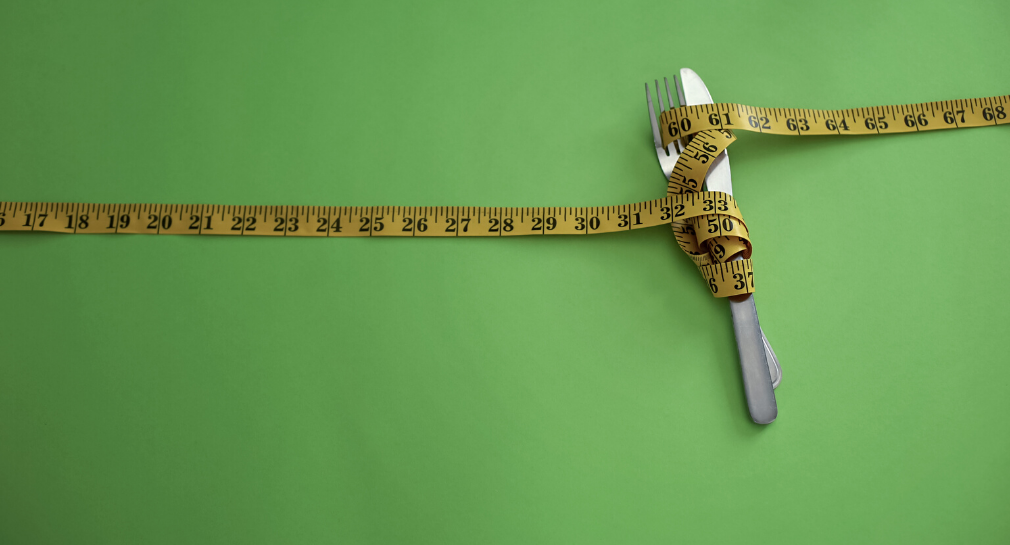Phantom Fat Disorder: When Weight Loss Doesn’t Register

Anne K. lost 130 pounds and although she logically knew she had lost weight, what she saw in the mirror did not reflect her weight loss.
She continued to take precautions around furniture (something she always had to do when she was heavier) and she continued to see herself in her old body and did not recognize her weight loss.
And she isn’t alone. Many individuals who lose weight experience this phenomenon, known as phantom fat disorder.
What is Phantom Fat Disorder?
Similar to someone losing a limb and having phantom limb sensations, when someone loses a significant amount of weight, they can still have sensations of that weight on their body.
And this phenomenon is often referred to as phantom fat disorder.
Experts suggest that this may happen because the brain has not had the chance to catch up to the physical weight loss.
Phantom Fat Disorder is a category of body dysmorphic disorder (BDD).
BDD is a psychological disorder classified in the Diagnostic and Statistical Manual of mental disorders (DSM-5) as a subclass of obsessive-compulsive disorder (OCD).
It is a preoccupation with one or more perceived defects or flaws in physical appearance that are not observable (or appear slight) to others.
At some point during the disorder, the person will perform repetitive behaviors (e.g., mirror checking, excessive grooming, reassurance seeking) or mental acts (e.g., comparing appearance with others) in response to their appearance concerns. This preoccupation causes significant distress or impairment in social, occupational, or other areas of functioning.
Although associated with physical appearance and often weight loss, BDD does not otherwise meet the diagnostic criteria for an eating disorder.
BDD is about more than what one sees in the mirror.
Think about your self-image. It is an abstract idea. Our past experiences, behaviors, social norms, and a number of other factors affect self-image. Your weight may change, but if your perceived self-image doesn’t improve, you may continue to see your past self.
Weight loss does not automatically create a healthier body image.
When Weight Loss Doesn’t Lead to Happiness
Many people expect weight loss to fix internal emotional struggles, which it doesn’t.
Others may hope for more weight loss or feel that the weight loss they’ve achieved isn’t enough.
Outward praise for weight loss may also intensify these feelings and reinforce the idea that appearance is the most important aspect of their lives.
Furthermore, weight loss can be the first physical positive reinforcement for many people, stimulating the reward centers of their brains. Overtime, this positive reinforcement can become almost addictive, leading to withdrawals when the weight loss stops.
As a result, when we set a goal to lose weight and make drastic changes to our lifestyle to achieve it, we can develop unrealistic expectations on what weight loss will achieve. And this can lead to disordered eating thoughts, fearing weight gain, restricting food intake, or overexercising.
What to do if you feel like you have PFD
- Surround yourself with a positive support system.
- Work on body acceptance and speak kindly to yourself, regardless of your current weight or weight loss goals
- Be proud of your accomplishments! Any weight loss, big or small, is a success.
- Wear clothes that are comfortable and attractive in your new body.
- Exercise in ways that are enjoyable both physically and mentally.
- Eat foods that are nourishing for your body and mind.
Most importantly, remember that you are a whole person. Your physical appearance and weight loss are small aspects of what makes you unique.
If you think you have BDD and it is significantly impacting your ability to live a full life, I would recommend working with a therapist. BDD is successfully treated with cognitive behavior therapy (CBT) and some SSRI medications when clinically indicated
Marysa Cardwell, MS, RDN, CD, CPT
Marysa Cardwell is a registered dietitian nutritionist and personal trainer.
Get the latest from our newsletter!
Sign up to receive the latest health content, workout routines, recipes and more from Lose It!Lose It! is mobilizing the world to achieve a healthy weight
Set Your Goals
Tell us what you want to achieve and receive personalized goals.
Track Your Food
Learn about the foods you're eating and keep your calories within your daily budget.
Lose Weight
Reach your goals and continue to set new ones for a happier, healthier you!
